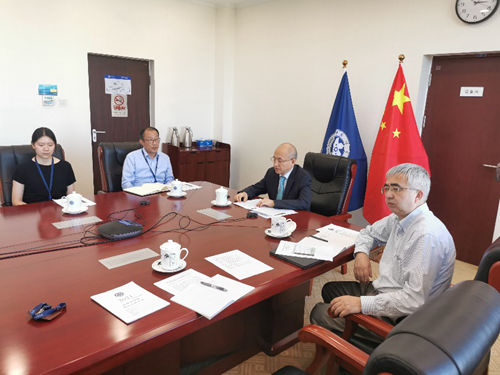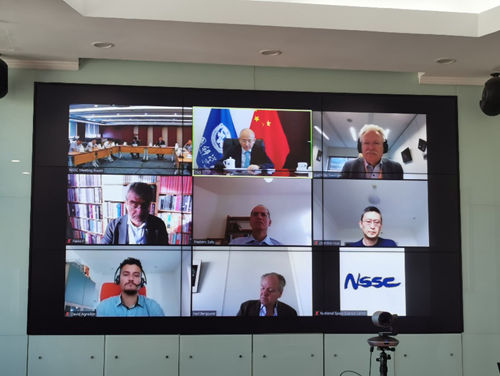The 17th China-ESA Space Science Bilateral Meeting Held Online
On 22 Sept. 2021, the 17th China-ESA Space Science Bilateral Meeting was jointly held online by the National Space Science Center (NSSC) of the Chinese Academy of Sciences (CAS) and the European Space Agency (ESA). Prof. ZHANG Yaping, Vice President of CAS attended the meeting and delivered an opening address. The online meeting was co-chaired by Prof. WANG Chi, Director General of NSSC and Prof. Günther Hasinger, Director of Science of ESA.
Prof. ZHANG Yaping stressed that this bilateral mechanism remains robust even in the hard time of the ferocious COVID-19 pandemic since 2020, which is not only the platform of exchange and cooperation, but also a bridge for partnership and friendship. In the opening address, Prof. Hasinger stressed the importance to focus on the joint solutions in the difficult time which demonstrates the true partnership.
In the meeting, Prof. WANG Chi introduced the scientific missions in China covering the past achievements of the missions in the first phase of Strategic Priority Program on Space Science (SPP-I), the recent progress of the missions in the second phase of SPP and the future planning for the third phase of SPP, while Prof. Hasinger provided an overview of the ESA science programs focusing on the scientific achievements of ongoing missions, the launch cadence of future scientific missions and its future planning up to 2050.
The meeting also discussed the progress of some cooperative projects, such as the Solar wind Magnetosphere Ionosphere Link Explorer (SMILE) and the Einstein Probe (EP) mission, and approved the distribution of development responsibilities as regard to the Ultra-Violet Imager (SMILE-UVI), a main payload of the SMILE mission.
China-ESA Space Science Bilateral Meeting was jointly initiated by ESA and CAS in 2004, which evolves as the most important mechanism of communications between the two sides. As a stable platform for Chinese and European scientists in the field of space science, the mechanism has substantially promoted the cooperation and exchanges in the field of space science between the two sides.
(supplied by Office of International Cooperation)

Fig. 1 Prof. ZHANG Yaping delivering an opening address
Fig. 2 the webinar


